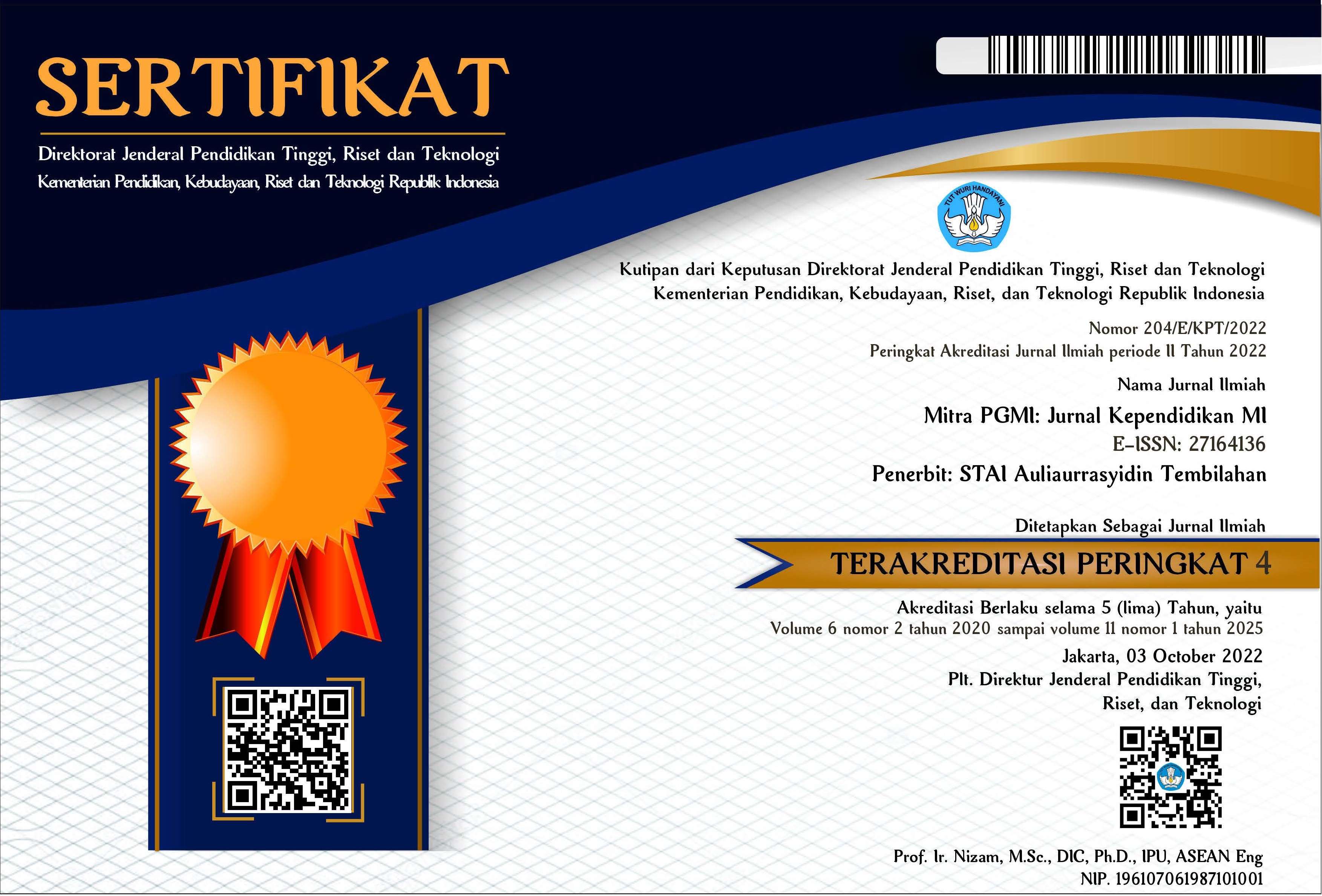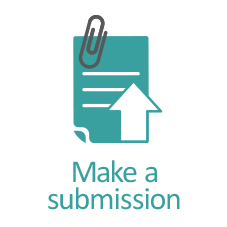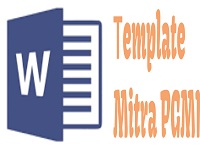Analisis Kebutuhan Modul Literasi Budaya: Studi Siswa MI Kelas 4 di Kabupaten Purworejo
DOI:
https://doi.org/10.46963/mpgmi.v9i2.867Keywords:
Needs Analysis, Cultural Literacy, PurworejoAbstract
Nowadays, there is a phenomenon where children prefer the culture of other countries rather than their own, for example Korean wafe culture. This study aims to determine the level of students' understanding of Purworejo cultural literacy in class IV students at MI Purworejo. This research method uses quantitative research with a survey approach. Data collection techniques by distributing questionnaires to fourth grade students, interviews with teachers at MI Purworejo and observation. Data analysis techniques using descriptive statistical analysis. Based on the results of the research, it shows that teachers really need a module about Purworejo cultural literacy. Several criteria are needed by teachers and students, namely there are pictures that support the material and the language used is simple and easy to understand. Students added that they wanted modules to be printed in full color, module activities were activities that were active and easy for students to carry. The teacher also wants the material to be adapted to the history and culture of Purworejo.
Downloads
References
Adinugraha, Fajar. 2019. “Integration of Local Wisdom and Cultural Approach in Biological Learning in Purworejo.” Jurnal Pendidikan 20(1): 1–17. https://jurnal.ut.ac.id/index.php/jp/article/view/217/203.
Ahsani, Eva luthfi Fakhru, and Nur Rufidah Azizah. 2021. “Implementasi Literasi Budaya Dan Kewargaan Untuk Mengembangkan Keterampilan Sosial Siswa Madrasah Ibtidaiyah Di Tengah Pandemi.” Jurnal Pendidikan Kewarganegaraan 11(01): 7.
Adlya, S. I., Yusuf, A. M., & Effendi, M. (2020). The Contribution of Self Control To Student Discipline. Journal of Counseling and Educational Technology.
Azka, H. H., Setyawati, R. D., & Albab, I. U. (2019). Pengembangan Modul Pembelajaran. Imajiner, 224-236.
Hadiansyah, Firman, Jumala, R., & Gani, S. (2017). Kementrian Pendidikan dan Kebudayaan Materi Pendukung LIterasi Budaya dan Kewargaan . Jakarta: Ed. Luh Anik Mayani.
Henry. (2021). Indonesia Tempati Urutan ke 4 Penggemar Korean Wave Terbesar. Liputan 6.
Kholisho, Y. N. (2017). Pengembangan Modul Pembelajaran Multimedia Untuk Meningkatkan Minat dan Pemahaman Konsep Mahasiswa Prodi Pendidikan Informatika. EDUMATIC : Jurnal Pendidikan Informatika , 17-23.
Nafi’ah, Siti Anisatun. 2018. “Kurikulum 2013 Tertolakkah?” As-Sibyan 1(1).
Safitri, Syelviana, & Ramadhan, Z. H. (2022). Implementasi Literasi Budaya dan Kewargaan di Sekolah Dasar. Mimbar Ilmu, 109-116.
Suherman, Agus, and Haris Santosa Nugraha. 2019. “Culture and Citizenship Literacy in Sundanese Children’s Literature.” Atlantis Press. 257(Icollite 2018): 346–48.
Susilo, A., Siswandari, & Bandi. (2016). Pengembangan Modul Berbasis Pembelajaran Saintifik Untuk Peningkatan Kemampuan Mencipta Siswa dalam Proses Pembelajaran Akuntansi Siswa Kelas XII SMAN 1 Slogohimo. Jurnal Pendidikan Ilmu Sosial.
The World Economic Forum. 2015. “New Vision For Education Unlocking The Potential Of Technology.” AIP Conference Proceedings 1702.
Triyono, A., & Warnadi. (2019). Manajemen Pemasaran. Yogyakarta: Deepublish.
Downloads
Published
Issue
Section
License
Copyright (c) 2023 Siti Anisatun Nafi’ah, Handara Tri Elitasari, Dhiya Ayu Tsamrotul Ihtiari

This work is licensed under a Creative Commons Attribution-ShareAlike 4.0 International License.
Authors who publish with this journal agree to the following terms:
1. Copyright on any article is retained by the author(s).
2. The author grants the journal, right of first publication with the work simultaneously licensed under a Creative Commons Attribution shareAlike 4.0 International License that allows others to share the work with an acknowledgment of the work’s authorship and initial publication in this journal.
3. Authors are able to enter into separate, additional contractual arrangements for the non-exclusive distribution of the journal’s published version of the work (e.g., post it to an institutional repository or publish it in a book), with an acknowledgment of its initial publication in this journal.
4. Authors are permitted and encouraged to post their work online (e.g., in institutional repositories or on their website) prior to and during the submission process, as it can lead to productive exchanges, as well as earlier and greater citation of published work.
5. The article and any associated published material is distributed under the Creative Commons Attribution-ShareAlike 4.0 International License








2.png)


